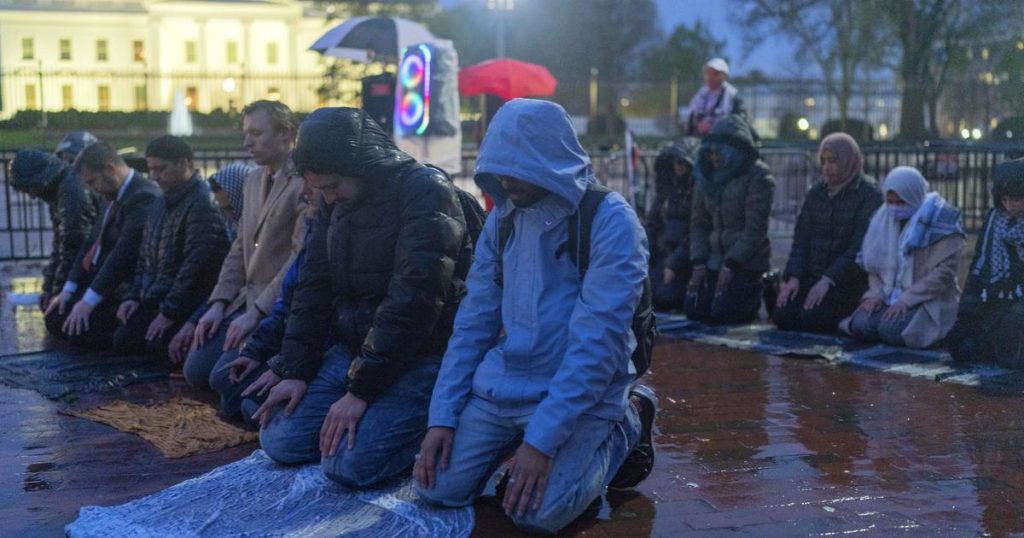President Biden’s handling of the recent Israel-Hamas conflict has caused a divide between him and the Muslim American community. Last year, during Ramadan, the White House hosted a celebration with hundreds of Muslims in attendance. However, this year, due to outrage over Biden’s support for Israel’s actions in Gaza, the iftar dinner was limited to administration officials only. Some Muslim leaders, like Wa’el Alzayat, declined their invitations in protest of the conflict in Gaza, feeling it was inappropriate to celebrate while there was a famine occurring. Despite attempts to adjust plans and host a meeting focused on administration policy, many still felt the forum was not conducive to a serious discussion.
Dr. Thaer Ahmad, a Palestinian-American ER doctor, attended the meeting with Muslim leaders at the White House and expressed disappointment at the vague comments made by President Biden. Ahmad presented a letter from an 8-year-old orphaned girl in Gaza and then left in protest. Democratic sources noted that Arab Americans who supported Biden in 2020 were excluded from the meeting, potentially due to their social media posts criticizing the president’s policies. The divide between the Biden administration and the Muslim American community has raised concerns about the impact on his support among this demographic and its implications for the upcoming election.
The boycotting of Biden’s invitation by some Muslim leaders reflects a larger dissatisfaction within the community with the president’s approach to the Israel-Hamas conflict. Similar protests and actions were seen in Detroit and Wisconsin, where voters cast protest votes in response to the administration’s handling of the war. The ongoing violence in Gaza, with a significant number of civilian casualties, has prompted calls for an immediate ceasefire. The Biden administration has continued to approve weapon sales to Israel while urging more caution in civilian areas and increased humanitarian aid to Gaza.
Nihad Awad, executive director of the Council on American-Islamic Relations, has called for a halt to meetings with the president or his representatives until a cease-fire is called for. He believes Biden has the power to influence the situation and stop the violence by pressuring Israeli leaders to cease hostilities. Awad’s past comments on the conflict have sparked controversy and criticism, with the White House denouncing his remarks as antisemitic. The tensions between Muslim Americans and the Biden administration underscore the emotional and political complexities surrounding the Israel-Hamas conflict and its impact on U.S. domestic politics.
The lack of open dialogue and engagement between President Biden and the Muslim American community during Ramadan highlights the strained relationship between the two. While the White House continued its tradition of honoring the Muslim community during the holy month, critical voices were notably absent from the iftar dinner and policy discussion. The exclusion of certain community leaders and activists has further deepened the rift, raising questions about the president’s handling of the conflict and his ability to navigate the complexities of the situation. As the election approaches, the Muslim American vote could prove pivotal in key battleground states, making it crucial for the Biden administration to address concerns and bridge the divide within the community to maintain electoral support.


